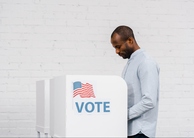|
Featured Article: What Determines the Success of First Dates? Psycho-Social Factors that Impact Mate Choice in Pre-Mating Encounters
We identified two categories of themes, inner world, that is all factors that are within the individual, and outer world, that is all external factors.
We identified the following themes of codes to be about internal factors: Aims, that is expectations, goals and outcomes of first dates. What represents success? Showing positive personality characteristics, that is showing attentiveness, as well as having positive personality traits. How should you portray yourself?
Aims. First dates were described as important because there was no second chance (MetroReporter, n.d.). Factors were impressing the partner using creativity (Greene, n.d.) and making a good impression (MetroReporter, n.d.). One of the goals was to leave the other wanting (Great(ish)Expectations, 2011).
Possible outcomes included a kiss (Great(ish)Expectations, 2011), but not necessarily more; and feeling the ‘chemistry’ (Great(ish)Expectations, 2011), that is, having met one’s soul mate or the love of one’s life (Arianna & Doc, 2013).
This is similar to what Mongeau et. al. (2004) found in their study. The primary goal seems to be to investigate if there is romantic potential. It also maps onto the findings (Mongeau et al., 2007) that adult’s dating goals, as compared to college students’ (2004), are more directed towards commitment.
That is to say, we can see first dates as serving the purpose of testing if a romantic relationship would be possible and desired with the other person. A date is successful, however not only, when it ‘clicks’ and one is left with the desire to see the person again.
Table 1: Aims as Described by Data
|
Quotation
|
Source
|
|
You don’t get a second chance to make a first impression, nor do you get a first chance to erase the memory
|
(MetroReporter, n.d.)
|
|
The key is creativity – she’ll be impressed if you’ve shown that [...] you thought about her
|
(Greene, n.d.)
|
|
If your good date’s going well you want it to end early and leave the other person wanting more.
|
(Great(ish)Expectations, 2011)
|
|
A really good, deep goodnight kiss is all you really need.
|
(Great(ish)Expectations, 2011)
|
|
If the date went well, try setting up the next date. If it didn’t go well, [...] just tell me you’re not feeling it
|
(Great(ish)Expectations, 2011)
|
|
Too many people approach online dating with the attitude that they will probably meet the love of their lives within the first date or two.
|
(Arianna & Doc, 2013)
|
|
Another thing we see a lot is people getting super-excited before a first date, […] convinced that they are about to meet their soul-mate.
|
(Arianna & Doc, 2013)
|
Showing positive personality characteristics. Three accounts mentioned that it should be taken care to show a positive personality. This advice was mainly for men though.
Attentiveness. First of all, it was talked about being attentive to the woman and making her feel important (Greene, n.d.) (this goes back to aims and making a good impression). Not only should men use their imagination and creativity, but also their knowledge about the woman to show her that he cares about her (Greene, n.d.). It was also important to be polite, i.e. opening the door for her, and giving compliments (Greene, n.d.; s.e.Jones, n.d.).
This may link to behavioural scripts and social roles. It does indeed make sense to show interest in the other person since this is what the first date is about. Being attentive would also be the logical consequence of first date aims and goals, such as reducing uncertainty and investigating romantic potential (Mongeau et al., 2004).
Table 2: Attentiveness as Described by Data
|
Quotation
|
Source
|
|
The key is creativity – she’ll be impressed if you’ve shown that you not only got her something, but that you thought about her while doing it.
|
(Greene, n.d.)
|
|
If you greet her with a red rose and a smile, you’re sure to get a warm response [...] If you already know some details about this woman, use the information to your advantage. [...] Otherwise, use your imagination.
|
(Greene, n.d.)
|
|
Be polite, not pushy
|
(Greene, n.d.)
|
|
Do offer to open the door for her
|
(Greene, n.d.)
|
|
Be complimentary
|
(Greene, n.d.)
|
|
Many men forget to notice and compliment their date’s appearance. [...] it’s important that you acknowledge her efforts.
|
(Greene, n.d.)
|
|
[Talk about] Something you notice about the other person.
|
(s.e.Jones, n.d.)
|
|
Try to keep any observations positive and innocent;
|
(s.e.Jones, n.d.)
|
Personality traits. Readers were advised to show that they are assertive, however not aggressive (Greene, n.d.). This includes showing a polite character and a “willingness to forgive” (Greene, n.d.). It is important to find the right balance between ‘playing cool’ and being too keen (MetroReporter, n.d.).
This maps onto assortative mating in that women seem to prefer men with socially desirable personality characteristics (Botwin et al., 1997).
Table 3: Personality Traits as Described by Data
|
Quotation
|
Source
|
|
Be assertive, not aggressive
|
(Greene, n.d.)
|
|
It's important that you show her you're confident.
|
(Greene, n.d.)
|
|
she'd prefer you be courteous than cantankerous. [...] A polite smile and a simple assertion that your order has been confused is the perfect time for you to show your willingness to forgive
|
(Greene, n.d.)
|
|
[Do not] Come over too keen [or] Come over too aloof
|
(MetroReporter, n.d.)
|
|
If you find yourself looking at your watch during the date, or saying, ‘Meh, if you want,’ when the subject of a second meeting comes up, you’re probably playing it too cool.
|
(MetroReporter, n.d.)
|
We identified the following themes of codes to be about external factors: Communicating interest, that is factors concerning conversation, including conversation topics and how to make conversation. How to be interesting? Not being awkward, that is social norms, scripts and gender roles. How to behave correctly? Situational factors, that is duration and location of the date.
Communicating interest. This theme is about the conversation on a first date. The data emphasised being able to keep the conversation going, talking about topics that interest both partners and being interesting.
Conversation topics. A number of different appropriate conversation topics were proposed in the data, mostly by one source (s.e.Jones, n.d.). These included focusing on oneself and the partner. You should talk about your and your dates personality, opinions and worldview, your history, interests, likes and dislikes. The surroundings can also serve as a good conversation topic. It should however be avoided to talk about awkward topics (s.e.Jones, n.d.), such as sex or relationships (MetroReporter, n.d.).
Notable here is the focus on topics that have been shown to be factors for assortative mating, such as attitudes, personality and worldview.
Table 4: Conversation Topics as Described by Data
|
Quotation
|
Source
|
|
It's almost always a good idea to talk about yourself, so long as you allow them to talk about themselves as well. Tell them a little bit about where you are in life, a little of your past, and where you hope to be in the future.
|
(s.e.Jones, n.d.)
|
|
Try to come up with something that will not only be interesting but will say something about who you are and how you see life in general.
|
(s.e.Jones, n.d.)
|
|
give them an idea of how you came to be the person sitting before them today
|
(s.e.Jones, n.d.)
|
|
Talk about the things you like, and/or the things you like to do.
|
(s.e.Jones, n.d.)
|
|
Likes and dislikes. List 'em off
|
(s.e.Jones, n.d.)
|
|
wandering into inappropriate subject areas or worse
|
(s.e.Jones, n.d.)
|
|
[Do not] Talk about your ex [...] Or anyone you’ve slept with. Just don’t go there under any circumstances.
|
(MetroReporter, n.d.)
|
|
[Do not] Talk about sex [...] The old rules that stipulate you mustn’t talk about politics and religion are out, but you should still avoid talking about sex.
|
(MetroReporter, n.d.)
|
How to make conversation. Three sources advised on conversational skills (Greene, n.d.; MetroReporter, n.d.; s.e.Jones, n.d.). Silence should be avoided (s.e.Jones, n.d.), but the conversation should also not be one-sided, that is no monologue (Greene, n.d.) and no interview (Greene, n.d.; MetroReporter, n.d.). You should further choose topics that interest both of you (s.e.Jones, n.d.) and not be boring (Greene, n.d.). You should show interest, however balanced (Greene, n.d.).
Clearly, social skills are required for a successful first date, especially as it is potentially the most important part of the behavioural scripts for first dates found by Serewicz and Gale (2008). This also maps onto the reasons for breakup found by Hill et al. (1976): Becoming bored with the relationship and differences in interest.
Table 5: How to Make Conversation as Described by Data
|
Quotation
|
Source
|
|
falling into long stretches of awkward silence
|
(s.e.Jones, n.d.)
|
|
Your intentions might be to keep the conversation flowing, but a monologue actually makes for a more uncomfortable evening than a few awkward pauses. So be sure to ask her about herself; just don't turn it into an interview.
|
(Greene, n.d.)
|
|
Please don’t ask your date where they see themselves in five years’ time, or what motivates them.
|
(MetroReporter, n.d.)
|
|
what happens is people wind up talking about things that might not be of interest to the other
|
(s.e.Jones, n.d.)
|
|
It doesn't have to be overly extravagant, just make sure you have some other ideas in the event the night doesn't come together exactly as planned. From ice skating to salsa dancing to coffee drinking - any backup option is better than no option at all.
|
(Greene, n.d.)
|
|
The result can often be you talking about all the things you've accomplished while neglecting to ask her about her interests
|
(Greene, n.d.)
|
Not being awkward. This theme is about the role of social norms, behavioural scripts and gender roles on a first date. In order not to be awkward, you should comply with what is socially accepted behaviour (Greene, n.d.).
Looking good is also important in this regard (MetroReporter, n.d.). When it comes to gender roles, the man should set up the first date and at least split the bill equally (MetroReporter, n.d.) or pay for it (Great(ish)Expectations, 2011). However, the girl should offer to pay her part (Great(ish)Expectations, 2011).
This supports Serewicz and Gale’s (2008) findings that first dates come with fairly conservative gender roles.
Table 6: Not Being Awkward as Described by Data
|
Quotation
|
Source
|
|
She may not tell you that etiquette is a priority, but be sure that she's keeping an eye on what you are, and perhaps more importantly, what you aren't doing.
|
(Greene, n.d.)
|
|
Men, don’t wear anything that could p[o]tentially embarrass your date, like scruffy trainers or an offensive t-shirt. And ladies, this applies to you too.
|
(MetroReporter, n.d.)
|
|
As a guy I can tell you it’s a lot to always be the one setting up dates
|
(Great(ish)Expectations, 2011)
|
|
There’s no way he should allow you to pay, but offering is key. I would never let a girl pay on the first date
|
(Great(ish)Expectations, 2011)
|
|
Let this be the bill that sets the tone for the relationship and let this relationship be an equal one.
|
(MetroReporter, n.d.)
|
Situational factors. Finally, there are those factors that keep the date within reasonable bounds. The location should be chosen wisely to offer a relaxing atmosphere that takes away the pressure (Great(ish)Expectations, 2011). It should not be too loud, nor too quiet (Great(ish)Expectations, 2011).
Also, you should have a time constraint for your date and not stretch it out too long - at least if your aim is to make the other person want you (Great(ish)Expectations, 2011).
This supports Serewicz and Gale’s (2008) findings that expectations of communicative intimacy vary depending on the date location.
Table 7: Situational Factors as Described by Data
|
Quotation
|
Source
|
|
First dates are pressure enough, a relaxed environment will make you both more comfortable and you’ll get to know each other better.
|
(Great(ish)Expectations, 2011)
|
|
Bars are too loud and all you can do is drink, movies are too quiet and awkward
|
(Great(ish)Expectations, 2011)
|
|
If your good date’s going well you want it to end early and leave the other person wanting more.
|
(Great(ish)Expectations, 2011)Continued on Next Page »
|
Arianna, & Doc. (2013, September 17). Why You Should Keep First Date Expectations Reasonable. Retrieved April 18, 2014, from http://cupidselves.com/2013/09/17/first-date-expectations/
Bartoli, A. M., & Diane Clark, M. (2006). The dating game: Similarities and differences in dating scripts among college students. Sexuality & Culture, 10(4), 54–80.
Botwin, M. D., Buss, D. M., & Shackelford, T. K. (1997). Personality and mate preferences: five factors in mate selection and marital satisfaction. Journal of Personality, 65(1), 107–136.
Braun, V., & Clarke, V. (2006). Using thematic analysis in psychology. Qualitative Research in Psychology, 3(2), 77–101.
Buss, D. M., & Barnes, M. (1986). Preferences in human mate selection. Journal of Personality and Social Psychology, 50(3), 559.
Doise, W. (1980). Levels of explanation in the European Journal of Social Psychology. European Journal of Social Psychology, 10(3), 213–231.
Great(ish)Expectations. (2011, August 5). The First Date... From a Guy’s Perspective. Retrieved April 18, 2014, from http://greatishexpectations.wordpress.com/2011/08/05/the-first-date-from-a-guys-perspective/
Greene, A. (n.d.). 7 Things Women Expect On A First Date. Retrieved April 18, 2014, from http://askmen.com/dating/heidi_100/108_dating_girl.html
Hill, C. T., Rubin, Z., & Peplau, L. A. (1976). Breakups Before Marriage: The End of 103 Affairs. The Journal of Social Issues, 32(1), 147–168.
MetroReporter. (n.d.). Things not to do on a first date. Retrieved April 18, 2014, from http://metro.co.uk/2013/04/10/things-not-to-do-on-a-first-date-top-10-dating-mistakes-3591317/
Mongeau, P. A., Jacobsen, J., & Donnerstein, C. (2007). Defining Dates and First Date Goals: Generalizing From Undergraduates to Single Adults. Communication Research, 34(5), 526–547.
Mongeau, P. A., Serewicz, M. C. M., & Therrien, L. F. (2004). Goals for cross‐sex first dates: identification, measurement, and the influence of contextual factors. Communication Monographs, 71(2), 121–147.
s.e.Jones. (n.d.). Ten Things to Talk About on a First Date. Retrieved April 18, 2014, from http://voices.yahoo.com/ten-things-talk-first-date-3605543.html
Serewicz, M. C. M., & Gale, E. (2008). First-Date Scripts: Gender Roles, Context, and Relationship. Sex Roles, 58(3-4), 149–164.
Thiessen, D., & Gregg, B. (1980). Human assortative mating and genetic equilibrium: An evolutionary perspective. Ethology and Sociobiology, 1(2), 111–140.
Vandenburg, S. G. (1972). Assortative mating, or who marries whom? Behavior Genetics, 2(2), 127–157.
Save Citation » (Works with EndNote, ProCite, & Reference Manager)
APA 6th
Holschuh, L. (2014). "What Determines the Success of First Dates? Psycho-Social Factors that Impact Mate Choice in Pre-Mating Encounters." Inquiries Journal/Student Pulse, 6(12). Retrieved from http://www.inquiriesjournal.com/a?id=944
MLA
Holschuh, Lukas. "What Determines the Success of First Dates? Psycho-Social Factors that Impact Mate Choice in Pre-Mating Encounters." Inquiries Journal/Student Pulse 6.12 (2014). <http://www.inquiriesjournal.com/a?id=944>
Chicago 16th
Holschuh, Lukas. 2014. What Determines the Success of First Dates? Psycho-Social Factors that Impact Mate Choice in Pre-Mating Encounters. Inquiries Journal/Student Pulse 6 (12), http://www.inquiriesjournal.com/a?id=944
Harvard
HOLSCHUH, L. 2014. What Determines the Success of First Dates? Psycho-Social Factors that Impact Mate Choice in Pre-Mating Encounters. Inquiries Journal/Student Pulse [Online], 6. Available: http://www.inquiriesjournal.com/a?id=944
Suggested Reading from Inquiries Journal
Increasingly, human interactions are being communicated by means of electronic, Internet-based medias. Readily available programs and websites facilitate easy transference of messages, thus rendering space and time irrelevant. The quick, efficient manner of Internet-based medias allow for easy access to users who want to examine... MORE»
Since 2004, the proliferation of marriage markets in China has made BaiFaXiangQin an attractive alternative for parents that are anxious and eager to help their single children find a suitable match for marriage. This paper discusses the possible cultural and financial reasons behind the increasing popularity of BaiFaXiangQin... MORE»
The evolution of social media sites, such as Facebook, Twitter, Instagram, etc., have changed the way we look at relationships. Social networking sites have become a popular place to meet and connect with other people. They... MORE»
Tipping is a customary practice in the U.S., but many have questioned why customers are so willing to give money away to a server in the foodservice industry. Previous literature has explored factors that influence tipping... MORE»
Latest in Psychology
2022, Vol. 14 No. 06
Change blindness is the finding that people often fail to notice substantial changes between different views of a visual scene. The current study investigated the effect of mood states on people’s ability to detect changes, by comparing participants... Read Article »
2022, Vol. 14 No. 05
The prevalent school of thought states that suicidal ideation and suicide planning are not associated with living in households with firearms. Using data from the National Longitudinal Study of Adolescent to Adult Health (Add Health) in the years... Read Article »
2022, Vol. 14 No. 04
Marion Godman makes the argument that Pathological Withdrawal Syndrome (PWS) makes the case for psychiatric disorders as a natural kind. Godman argues that we can classify kinds according to their shared ‘grounding’, but we need not... Read Article »
2022, Vol. 14 No. 03
The study investigated stress, coping strategies, and problem-solving skills among college students. A total of 202 university students completed this study. The purpose of this study was to address gaps in the existing literature regarding stress... Read Article »
2021, Vol. 13 No. 12
Political polarization has been an increasingly salient point of discussion since the 2016 presidential campaign, the election of Donald Trump, and into today. Beyond emphasizing partisan and issue-based divides, scholars have identified emotion... Read Article »
2021, Vol. 13 No. 04
The question of what it means to be a gendered individual has been left unanswered in light of its variants. The feminist movement proceeding the Industrial Revolution propelled philosophical and literary works, such as Simone de Beauvoir’... Read Article »
2021, Vol. 13 No. 03
Positive affect (PA) is active, enthusiastic, and happy engagement in pleasurable activities and negative affect (NA) includes aversiveness, anger, and fear (Watson et al., 1988). Two studies examined linguistic affect presented as emotion words... Read Article »
|



















